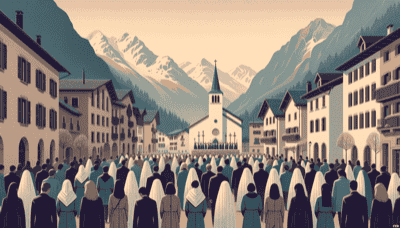We're here to help you keep count of the days to or since a date. Just click the button below and enter your chosen date to get started. Also choose the suggested days or search for a special day above #countingthedays

Good Friday in Cuba
Good Friday, known as "Viernes Santo" in Spanish, is a significant day in the Christian calendar that commemorates the crucifixion of Jesus Christ. In Cuba, which has a rich mix of religious traditions due to its diverse cultural history, Good Friday was not traditionally a public holiday following the revolution as the state declared itself atheist and suppressed religious activities.
However, with the visit of Pope John Paul II in 1998, there was a gradual easing of religious restrictions. The pivotal change for Good Friday came after Pope Benedict XVI's visit in 2012 when the Cuban government declared it a public holiday on a temporary basis. This decision was influenced by the Pope's request and was later made permanent by President Raúl Castro.
Traditions and Observances:
Religious Services: Many Cubans attend church services on Good Friday. Churches hold solemn liturgies that often include reading the Passion of Christ, veneration of the cross, and Communion.
Processions: In some localities, religious processions are held to reenact Jesus' path to crucifixion. Participants often carry crosses and religious icons through the streets.
Silence and Reflection: It is customary for people to observe silence and reflection from noon until 3 p.m., which are considered the hours of Jesus' suffering on the cross.
Fasting and Abstinence: Some Cubans practice fasting or abstaining from meat on Good Friday as an act of penance.
What People Do:
On Good Friday in Cuba, those who observe the day may participate in various activities including:
Over time, while some Cubans maintain these religious practices, others may treat it as a secular holiday for relaxation due to varied levels of religiosity across the population.